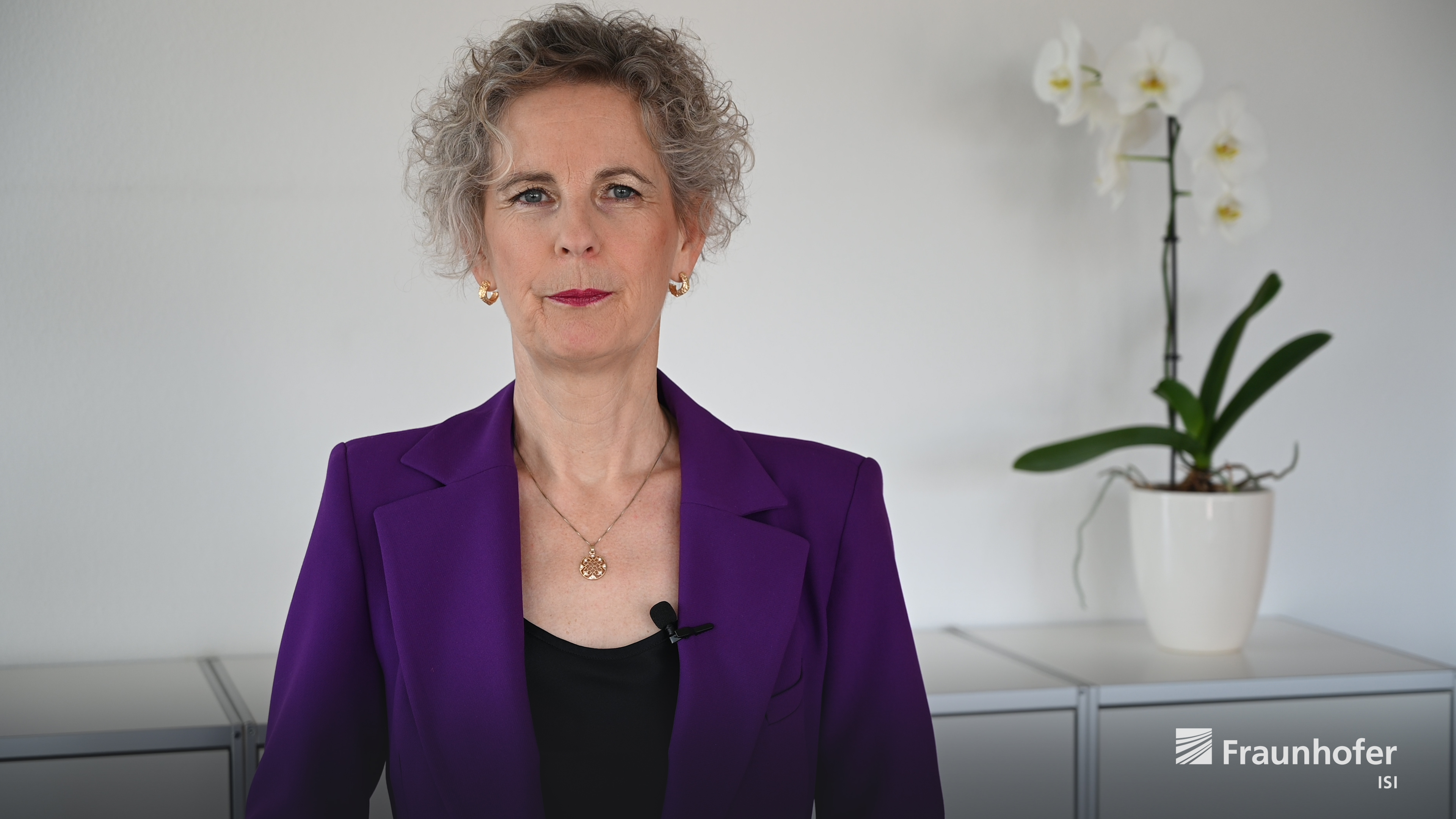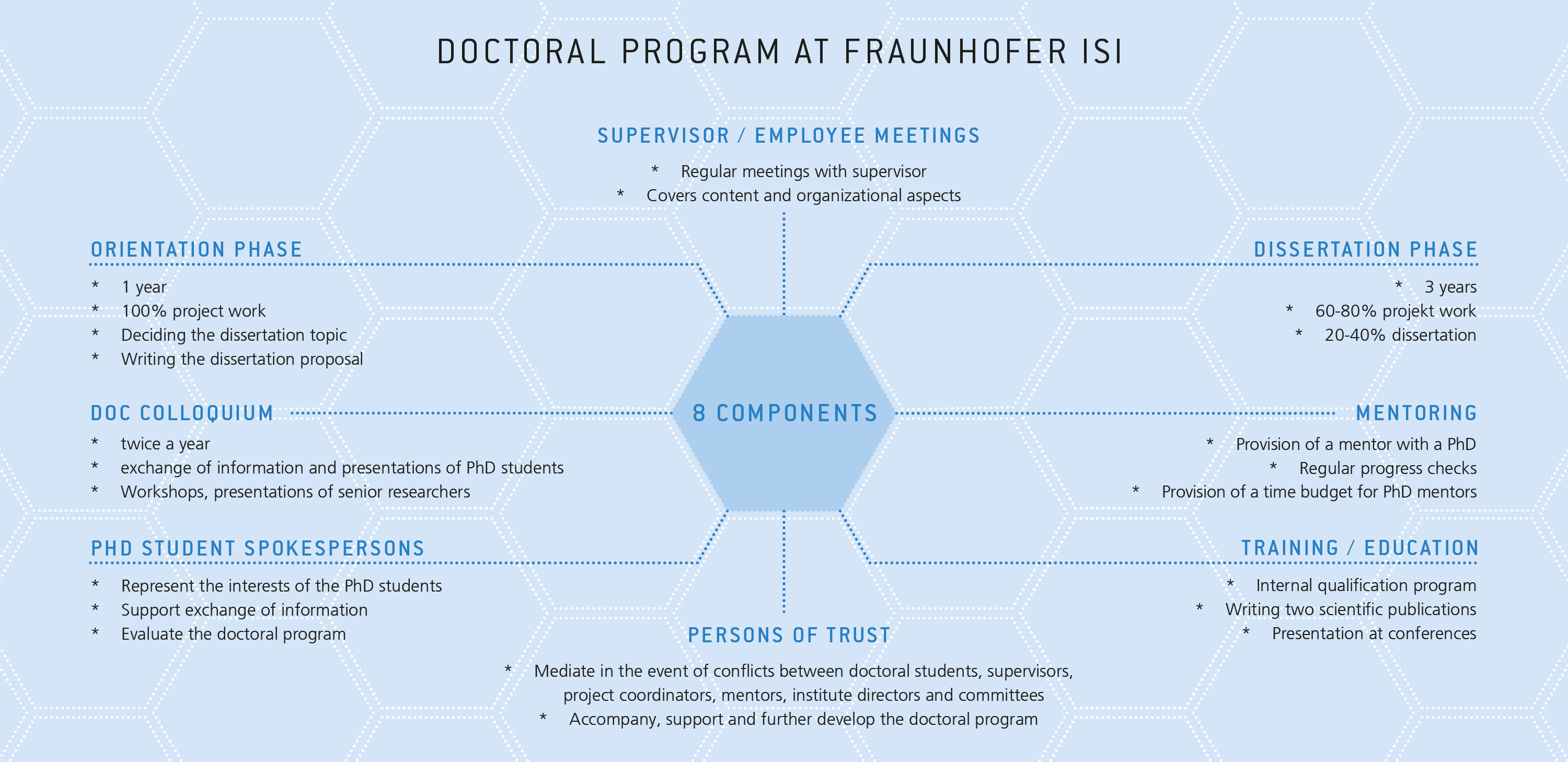Doctorate at Fraunhofer ISI: Our doctoral program
"Doing a doctorate at Fraunhofer ISI means being close to the action": Around 60 young scientists are working as doctoral students at Fraunhofer ISI. Parallel to their doctorate, they work on scientific projects at the interface between technology, business and society. The doctoral program is designed to last four years and consists of a one-year orientation phase and a three-year dissertation phase.

